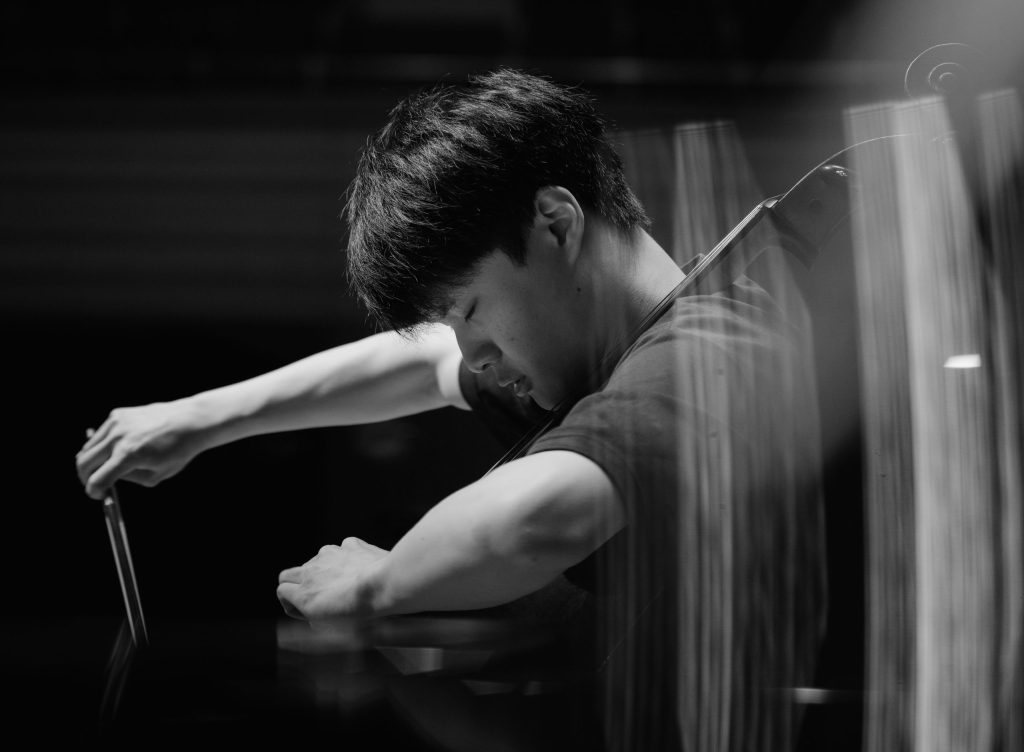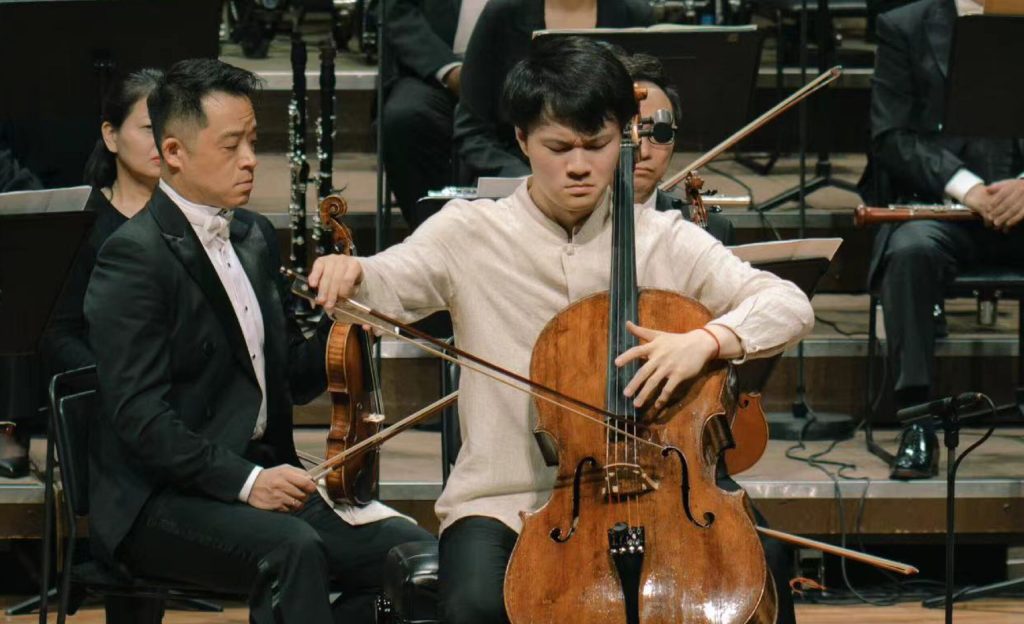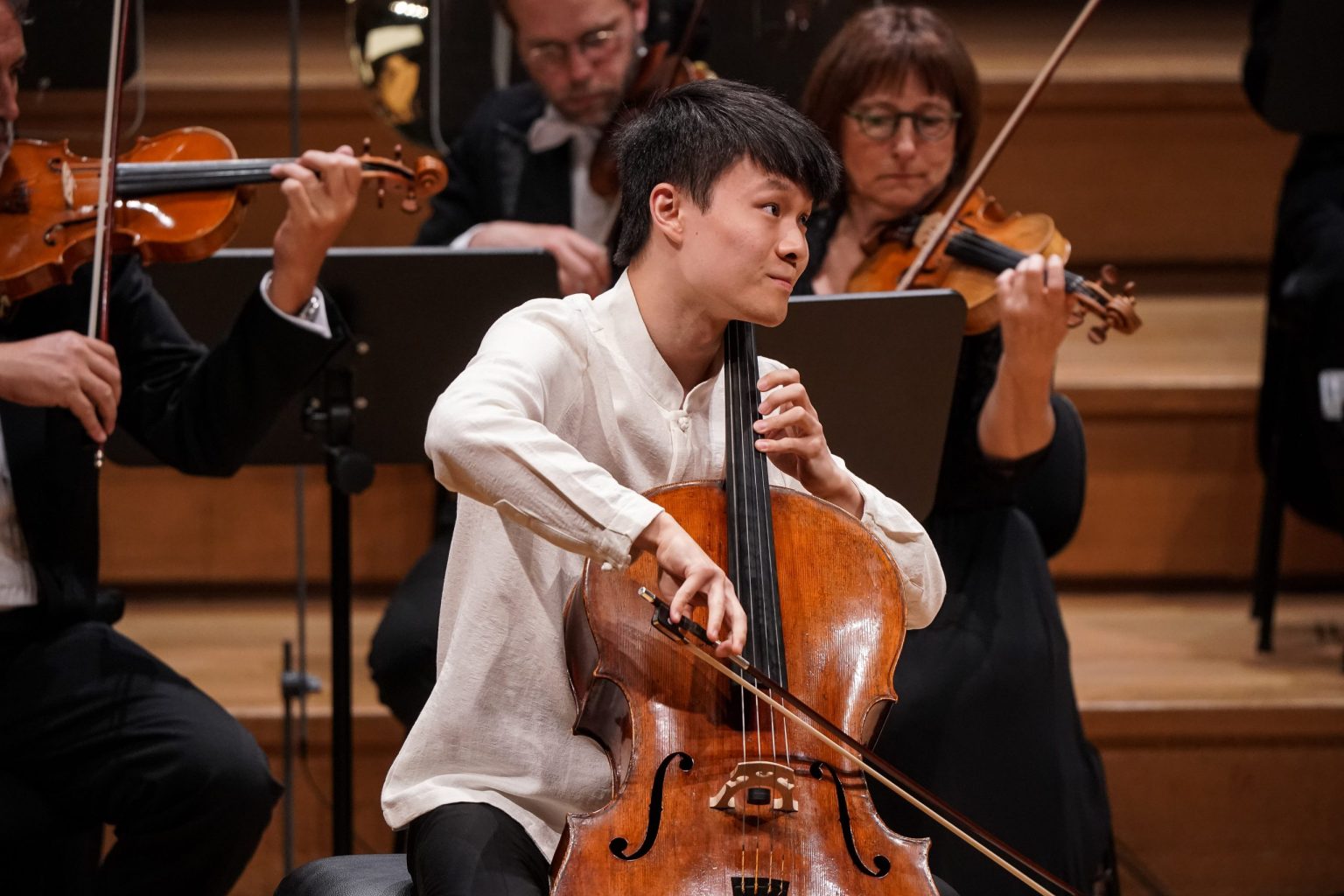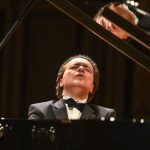interview by Alžběta Holcová
The Pardubice Chamber Philharmonic enters its 57th season this year, opening with a series of three inaugural concerts under its new chief conductor, Vahan Mardirossian. Sharing the stage with the orchestra will be the young cellist Yibai Chen. The paths of these two musicians first crossed at the prestigious Queen Elisabeth Competition in Brussels in 2022—a breakthrough moment that launched Chen’s international career.
Praised for his dazzling technique as well as his profound emotional expression, Yibai Chen has since performed at numerous international music festivals and collaborated with orchestras in Brussels, Shanghai, Basel, Warsaw, and St. Petersburg, among others. Czech audiences may remember him from a previous appearance with the Janáček Philharmonic, and this year they will have another chance to hear him—this time in Pardubice. On this occasion, we had the pleasure of speaking with the talented young cellist in an interview.
What inspired you to devote yourself to music and especially the violoncello?
Music has always been a profound language for me, one that conveys emotions beyond words. I was drawn to the cello because when I first heard it, its human-like voice impressed 5-year-old me deeply. I realized that was the voice I wanted to use to communicate with the world. Today, the cello is not just an instrument to me; it’s a lifelong companion.
You are the winner of several international competitions, what victory is the most valuable for you?
Every competition has been a milestone, but the Queen Elisabeth Competition holds special significance. It was a turning point that pushed me to grow under immense pressure and opened many opportunities to me. However, I don’t measure success solely by awards. The true value lies in the artistic growth and connections made through these experiences.

You have mentioned that international competitions put great pressure on artists, how do you deal with that?
Pressure is inevitable, but I transform it into motivation. Preparation is key: practice normally, yet avoid pushing beyond your limits. Step back to appreciate the music itself – this shifts your focus from yourself to serving the art. View competitions as stages to communicate with live and online audiences. The jury merely represents listeners voting for what moves them in that moment. Remember, no one can fully judge your music, for each soul perceives art through its own unique lens.
You are going to inaugurate the new season of The Czech Chamber Philharmonic Orchestra Pardubice with conductor Vahan Mardirossian, how did that happen?
It’s an honor! Maestro Mardirossian and I had an unforgettable memory of playing the Haydn C major concerto at the Semifinals of the Queen Elisabeth Competition. It was a pure joy that rarely happens on a competition stage. I believe that we both want to share this great spirit together with the wonderful Czech Chamber Philharmonic Orchestra Pardubice and dear music lovers in the Czech Republic.

You will perform, among others, Silent Woods by Antonín Dvořák, what is your relationship with
Dvořák’s music or Czech music in general?
Dvořák’s music resonates deeply with me – its lyrical warmth and folkloric roots feel like home. Silent Woods has touched my heart since childhood, weaving a fairy-tale narrative of the forest, both timeless and personal. Czech music, with its earthy melodies and emotional depth, speaks a universal language while remaining intimately expressive. I strive to honor its tradition while infusing it with my own voice.
What is crucial for you when collaborating with a conductor and orchestra?
Mutual respect and open communication are essential. A great collaboration hinges on listening – not just playing together, but breathing and phrasing as one. Trust and shared enthusiasm for the piece create magic on stage. I also value conductors who balance structure with freedom, allowing the music to breathe.
In conclusion, do you have a musical dream you’d like to fulfill?
Beyond performing iconic concertos worldwide, I dream of exploring lesser-known works and commissioning new pieces for the cello with my Chinese roots. Music is about dialogue across cultures and eras, and I’d love to contribute to its evolution. Ultimately, I hope to inspire younger generations to find their own voice in classical music.




